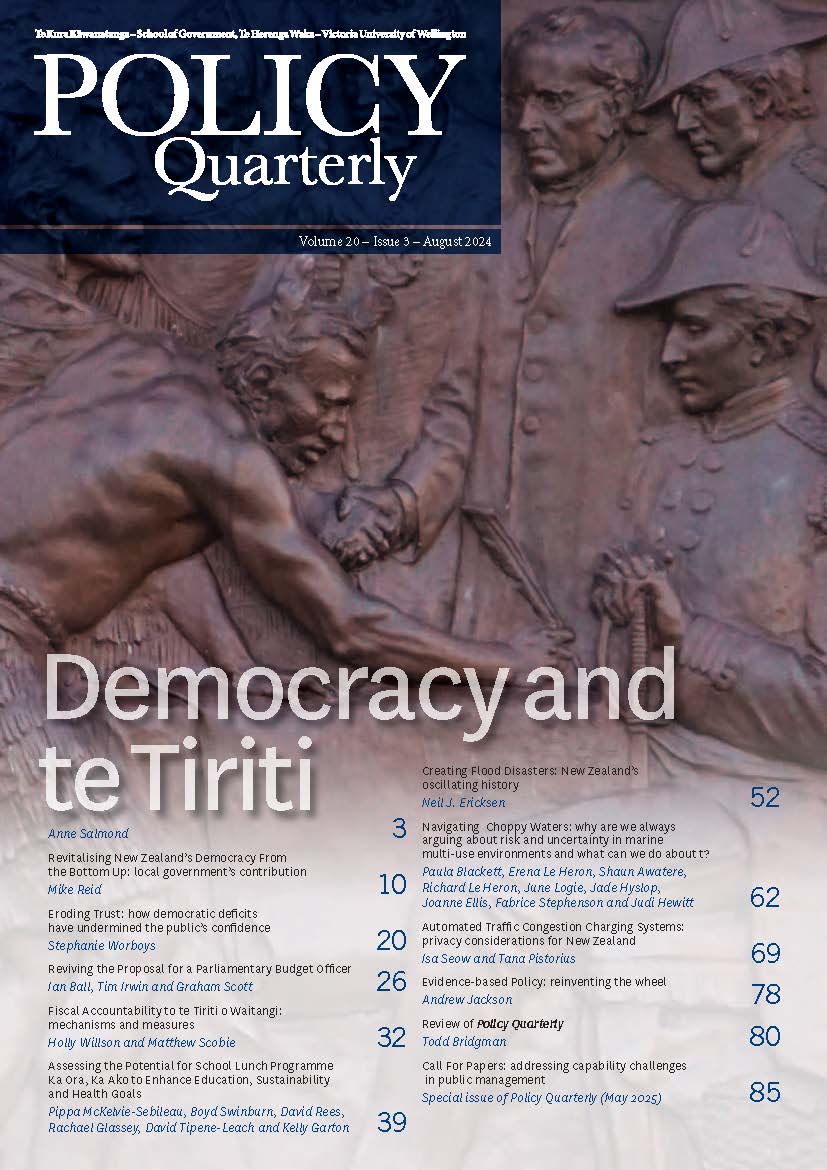Revitalising New Zealand’s Democracy From the Bottom Up
Local government’s contribution
DOI:
https://doi.org/10.26686/pq.v20i3.9561Keywords:
Local government, Democracy, Declining trust, Active citizenship, DeliberationAbstract
Established democracies across the world, with few exceptions, are grappling with the issues of growing distrust in public institutions and declining democratic participation. Governments have responded in multiple ways: by, for example, implementing strategies to address regional social and economic disadvantage, such as the United Kingdom’s levelling up programme, and reforming electoral systems to address perceived unfairness, such as limits on political donations. There has, however, been little attention given to the role that local government plays, or could play, in a strong and resilient democracy. Councils play at least three major roles: namely, promoting active citizenship, building social cohesion, and strengthening community voice and choice. This article examines the first of those roles, promoting active citizenship, and sets out the reasons why it needs to be a priority for New Zealand councils.
Downloads
Downloads
Published
Issue
Section
License
Permission: In the interest of promoting debate and wider dissemination, the IGPS encourages use of all or part of the articles appearing in PQ, where there is no element of commercial gain. Appropriate acknowledgement of both author and source should be made in all cases. Please direct requests for permission to reprint articles from this publication to Policy-Quarterly@vuw.ac.nz.



